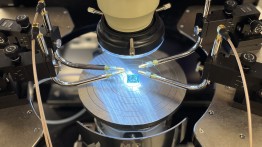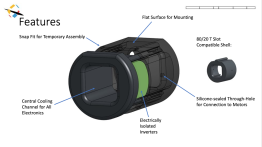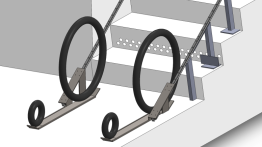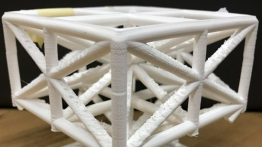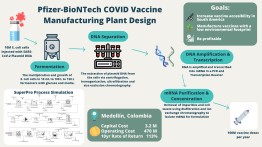Senior Snapshots: Engineering 2022
POSTED ON: May 16, 2022
At the end of each academic year, we talk to graduating students from all three of The Cooper Union’s schools to learn a little about their work, backgrounds, and what’s next for them after graduation. In this first installment of our Senior Snapshot series, we meet Albert Nerken School of Engineering seniors Alexa Jakob, Brandon Bunt, Gianna Slusher, Mary Vavruska, and Tiffany Cheung.
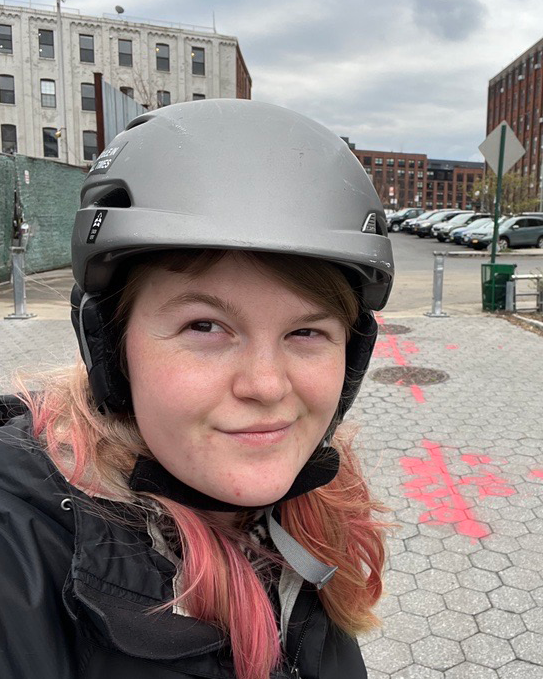 Born in Toronto, Alexa Jakob and her family moved to the suburbs of New York City when she was seven. Her parents were serious about her learning a second language, so she attended the French-American School of New York through high school. “It was cool to learn another language, but there were no engineering classes, so I was not exposed to engineering concepts,” Alexa says. While in high school, she attended Cooper’s Summer STEM program, where she and her fellow students built a Rube Goldberg device based on the New York City transit systems. “I’m a huge train nerd, and love the subway system,” she attests. “I can tell you how to get from point A to point B anywhere in the city.”
Born in Toronto, Alexa Jakob and her family moved to the suburbs of New York City when she was seven. Her parents were serious about her learning a second language, so she attended the French-American School of New York through high school. “It was cool to learn another language, but there were no engineering classes, so I was not exposed to engineering concepts,” Alexa says. While in high school, she attended Cooper’s Summer STEM program, where she and her fellow students built a Rube Goldberg device based on the New York City transit systems. “I’m a huge train nerd, and love the subway system,” she attests. “I can tell you how to get from point A to point B anywhere in the city.”
Alexa opted for electrical engineering at Cooper, and her senior project was on quantum computing, a burgeoning field that has the potential to radically change computing as we know it. She worked with researchers at the Shabani Lab for Quantum Materials and Devices at New York University, experimenting with ways to test quantum chips, which normally need to be supercooled, at room temperature. “That’s important because it’s expensive and takes a lot of time to bring the chips down to really low temperatures, and you need a lot of sophisticated equipment,” she explains. “With a preliminary validation at room temperature, you can streamline the process.”
Last year, she won a Barry Goldwater scholarship. Only about 300 are awarded nationally each year. “I did research with Dr. Mili Shah, and she was so supportive,” says Alexa. “I met with her every week, and I think that is why my application was so strong. I’ll remember things like that, and the relationships and mentorships that helped me while I was here.”
After graduation, Alexa is moving to Boston where she will work at Formlabs, an award-winning 3D printing company. “I wanted a job that was flexible, and I wanted to be doing a job where I was executing, not just looking at Excel spreadsheets all day,” she says. “When I visited, the people were incredible, and really committed to both good engineering and diversity. Everyone there wears a lot of hats, so it’s going to give me the chance to be creative.”
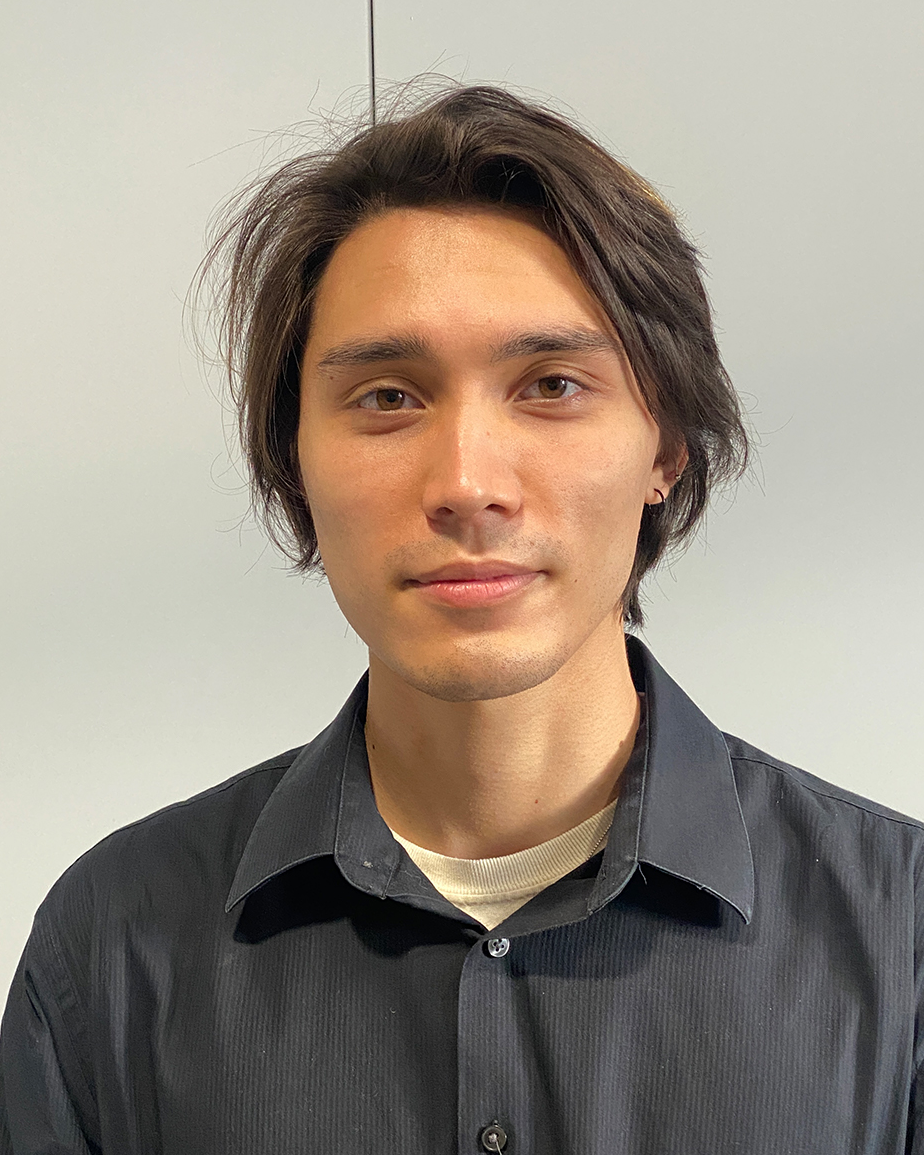 Brandon Bunt’s introduction to The Cooper Union came as a freshman in high school when he attended a nuclear non-proliferation conference at the Great Hall. Brandon’s mother is Japanese, and he had spent time in Japan when the family moved there for his father’s job. “There were Japanese survivors of the nuclear bombs at the conference talking about their experiences. Afterwards, I did some impromptu translating between the survivors and audience members,” Brandon recalls. “Because of that, Cooper always resonated in my mind as an institution with a strong social focus.”
Brandon Bunt’s introduction to The Cooper Union came as a freshman in high school when he attended a nuclear non-proliferation conference at the Great Hall. Brandon’s mother is Japanese, and he had spent time in Japan when the family moved there for his father’s job. “There were Japanese survivors of the nuclear bombs at the conference talking about their experiences. Afterwards, I did some impromptu translating between the survivors and audience members,” Brandon recalls. “Because of that, Cooper always resonated in my mind as an institution with a strong social focus.”
Brandon is completing his degree in general engineering this spring, and he has infused his work in engineering with his own dedication to social causes. One of his main interests is in advancing agricultural technology and making improved food production available to those who need it. “My interests in human-centered designed converged in engineering, and it’s a field where I can address human need while taking into account the social aspects of engineering.”
He pursued art and design as well as mechanical and electrical engineering before settling on general engineering as the best fit. The flexibility has helped him on his final project, where he is collaborating with a team of engineers and designers of various stripe on Cooper’s Motorsports and Hyperloop teams. He is working on developing a motor that converts DC electricity to AC, in reverse of the more typical converter that powers a smartphone from a wall socket. The converter could make more powerful AC motors usable in locations off the grid, where only solar or other DC power sources are available.
While he is graduating this spring, Brandon will be staying at Cooper another year to earn a master’s degree. In the meantime, he’s been working on a project as part of his work with CUSAP, The Cooper Union Sustainable Agriculture Project, designing hydroponic and aquaponic gardens for growing food in the home. “We’ve grown swiss chard and kale, and some other vegetables, but we are working on the form factor,” Brandon says. “I’ve learned so much, and it’s made me a hands-on, ‘let’s try it’ kind of person.”
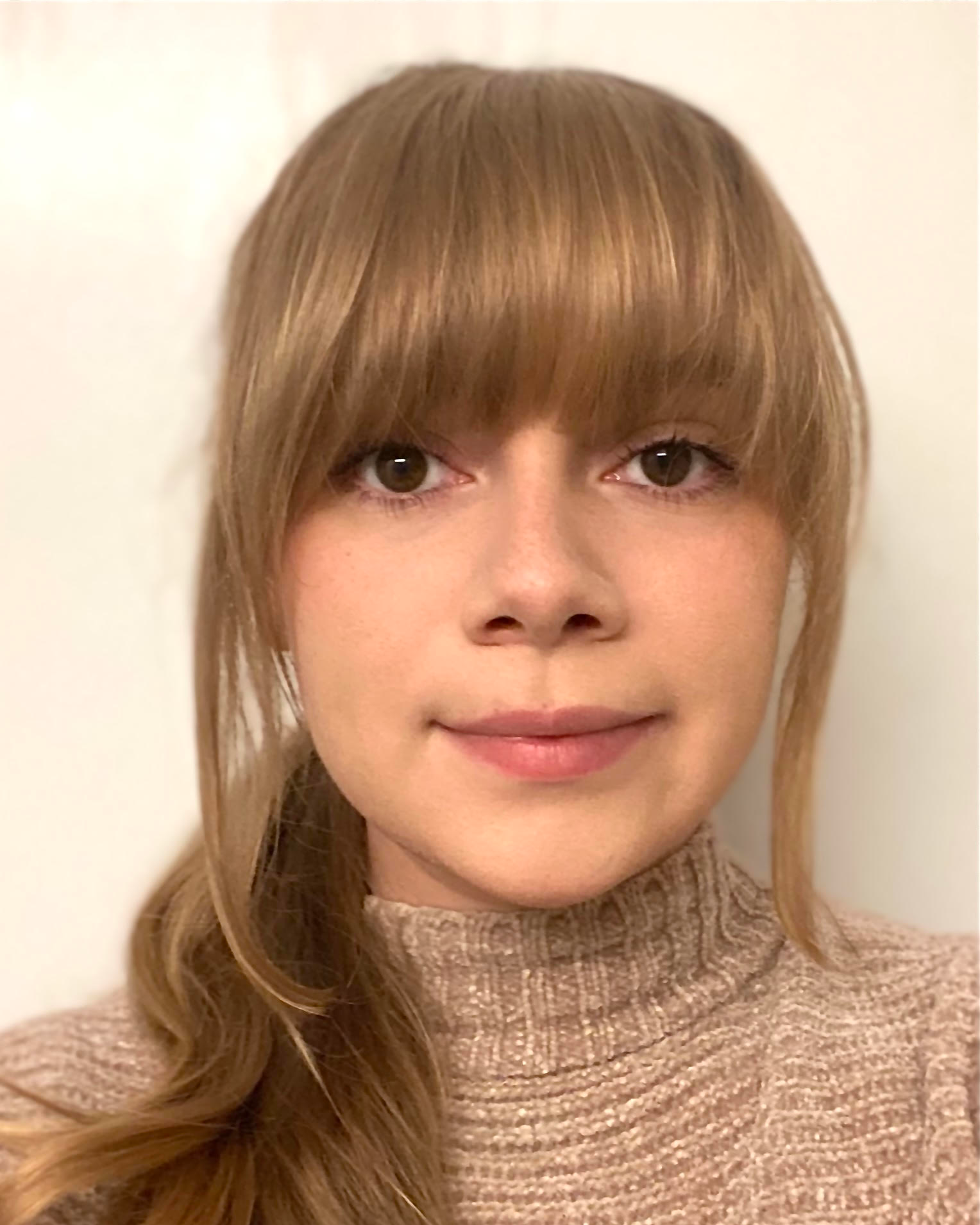 Career choices can be fraught, but sometimes finding what you don’t want to do can lead you in the right direction. Gianna Slusher attended a career-oriented high school for allied health in New Jersey and realized she did not want to be a doctor after all. But once she met with Cooper Union counselors who told her about the school’s engineering programs, it all clicked. “I wasn’t ready to give up health research, and I found that you can go into a lot of areas in the health field with mechanical engineering,” says Gianna.
Career choices can be fraught, but sometimes finding what you don’t want to do can lead you in the right direction. Gianna Slusher attended a career-oriented high school for allied health in New Jersey and realized she did not want to be a doctor after all. But once she met with Cooper Union counselors who told her about the school’s engineering programs, it all clicked. “I wasn’t ready to give up health research, and I found that you can go into a lot of areas in the health field with mechanical engineering,” says Gianna.
For her senior project, she and classmate Raphael Kepecs designed a stairlift that wheelchair users can lock into and use while staying in their chair. “I’m focused on biomechanics and want to find solutions for people with disabilities. One of the aspects of this project was how much we wanted to change the field,” she says. “With this lift, users don’t have to get out of one chair to use the lift and then get into another chair on the next floor. The design is meant to integrate well into the home, and users can just roll on and roll off.”
Gianna has been a member of The Cooper Union chapter of the Society of Women Engineers (SWE), and she was able to attend the SWE annual conference last October in person. “It was fun and felt very empowering. I learned a lot from the women professionals there,” she says. “The hardest part of being a part of a minority in your field is that you don’t see role models of who you could become. It was great to see possible versions of myself at the conference.”
For the fall, Gianna has been admitted to the doctoral program in bioengineering at Georgia Tech University, and is headed to Atlanta for the next phase of her journey where she will be exploring assistive technologies. “I loved the camaraderie here at Cooper, and the midnight breakfasts during finals when we were all stressing and pulling all-nighters,” she recalls. “It’s been exciting, and I think I’ve finally earned my status as a New Yorker.”
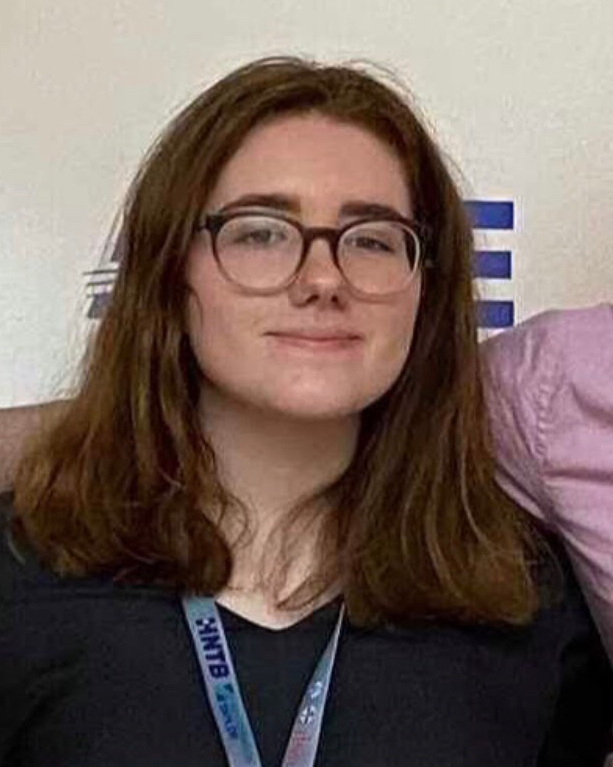 Growing up in Queens, history has always been a part of Mary Vavruska’s experience of the city. “I remember walking by The Cooper Union as a little kid, and my parents telling me that Abraham Lincoln spoke here,” she recalls. “They made sure to teach me about the history of the city, and I’m grateful for that.” That sense of history persisted, and when she was deciding on colleges, it sealed the deal for Cooper. “The memories stayed with me all through the time I was growing up, and it made it feel like the right place to be.”
Growing up in Queens, history has always been a part of Mary Vavruska’s experience of the city. “I remember walking by The Cooper Union as a little kid, and my parents telling me that Abraham Lincoln spoke here,” she recalls. “They made sure to teach me about the history of the city, and I’m grateful for that.” That sense of history persisted, and when she was deciding on colleges, it sealed the deal for Cooper. “The memories stayed with me all through the time I was growing up, and it made it feel like the right place to be.”
Mary is completing her degree in civil engineering and went into the field partly inspired by the buildings and bridges of the city. Her senior project gave her the chance to create a proposal of her own for East 4th Street. “Our group picked a lot next to the Merchant House Museum to design a hypothetical community art center. It’s unique in its own right, but respects the architecture of the buildings around it,” says Mary. The process, while theoretical, took her through every phase of getting a structure built, including zoning, environmental impacts, structural engineering, and budgeting. “It was a great way to apply everything we’ve learned here, and it’s about as close to a real project as you can get.”
In what spare time she had as a senior, Mary was president of the Cooper chapter of the American Society for Civil Engineers, and also participated in Cooper’s Steel Bridge Team. Cooper’s bridge squad competes annually against other area colleges, and teams must assemble an actual 20-foot steel bridge of their own design, while racing the clock. “It’s a little crazy,” Mary says. “You have to bring all the parts and put it together very quickly, and then the judges load test it.”
After graduation, she will begin looking at graduate programs, and intends to continue her studies next spring. In the meantime, she will continue steeping in the history of her city. “I really want to learn more about historic preservation, and hope I gear my career in that direction,” she says. “I guess I just have a love of older things. While we may be able to build these insanely complicated structures now, sometimes these older, less complicated buildings say so much more.”
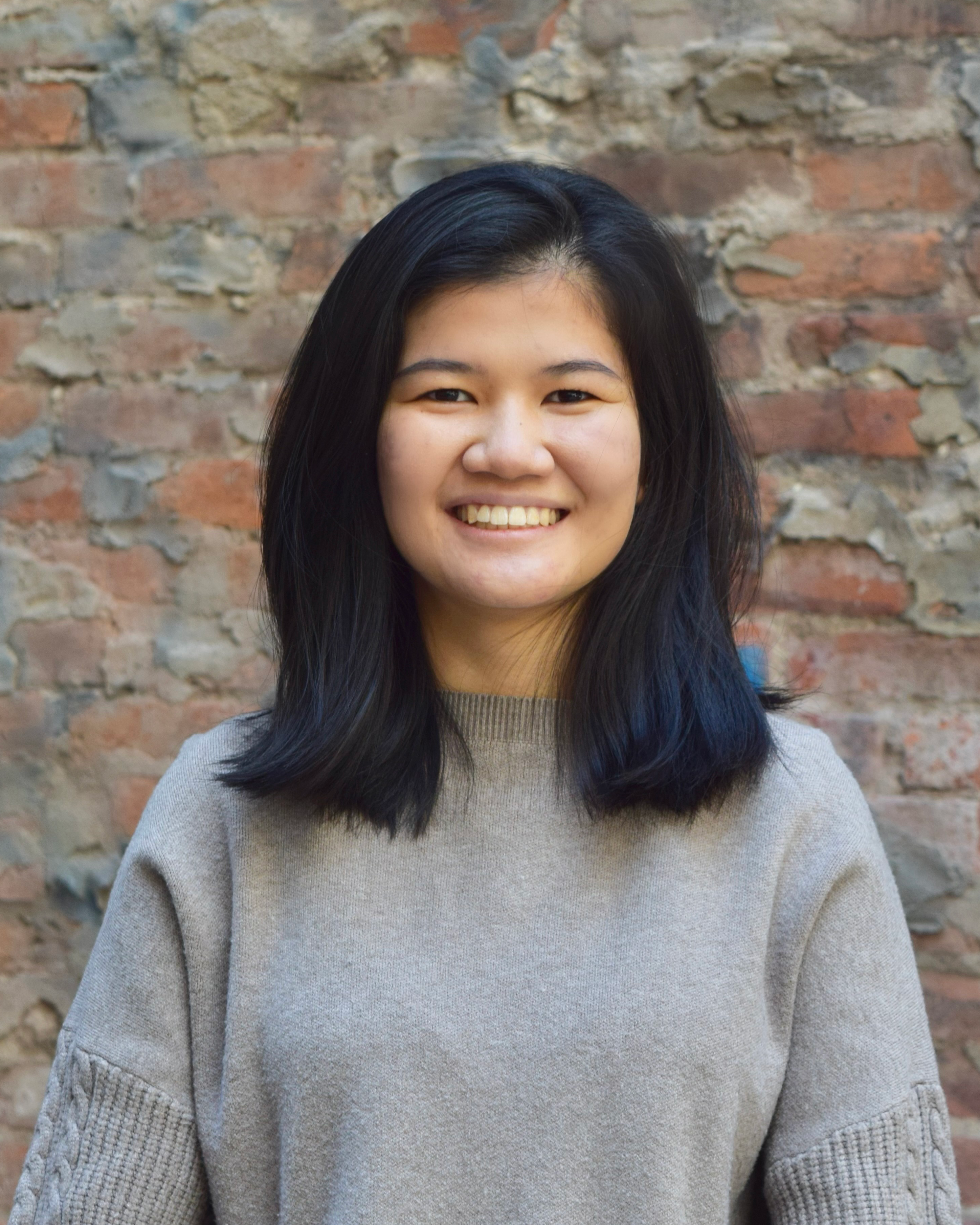 Miami-native Tiffany Cheung’s love of nature was inspired by the coastal environs of her home. “I grew up around the ocean and nature,” she says. “It instilled in me a desire to care for the planet, and to do something about climate change.” Tiffany found chemical engineering to be the sweet spot between her interest and talent for science, and she recognized that it’s a discipline flexible enough to have a wide array of practical applications.
Miami-native Tiffany Cheung’s love of nature was inspired by the coastal environs of her home. “I grew up around the ocean and nature,” she says. “It instilled in me a desire to care for the planet, and to do something about climate change.” Tiffany found chemical engineering to be the sweet spot between her interest and talent for science, and she recognized that it’s a discipline flexible enough to have a wide array of practical applications.
Though she grew up in Florida, Tiffany’s father is a Cooper Union alumnus in electrical engineering, and the family made frequent visits to New York City. “My father really encouraged me to apply, and I was looking for a small school environment to study as a woman in engineering, so Cooper was a natural fit,” she says. “I’ve made friends and had opportunities that I don’t think I would have had at any other school. There is a great sense of community here.”
Tiffany’s senior project and big focus for the last year has been to build a virtual COVID-19 vaccine plant sited in South America. The idea is to create a feasible plan for a plant that could be located near areas where vaccine access is scarce. “It has been a big challenge getting the information and technical data we need,” she reports. “Part of that is because the first vaccines weren’t created until about 18 months ago, and there isn’t a lot of publicly available information for our models.”
Another project she has been working on lately is a lifecycle analysis for Grimm Artisanal Ales, a highly regarded craft brewery based in Brooklyn. The opportunity came out of a beer class, The Science and Art of Brewing, better known as Cooper Brew. “A lot of our work in chemical engineering has to do with computer simulations. Cooper Brew gave me the chance to see chemical engineering in action, which is really enjoyable. It’s like a huge experiment.”
Cheung is keeping her post-graduation options open for the moment. She has had some offers but is hoping to stay in the New York area where she has friends and family. “There is a lot out there on the software side of things, but I am hoping to do something more directly related to chemical engineering.”

